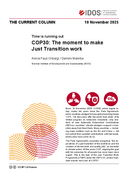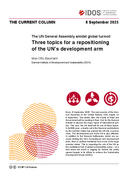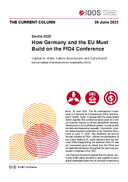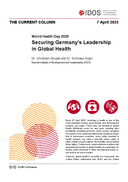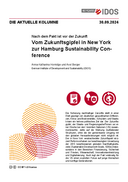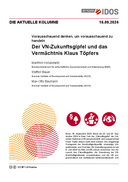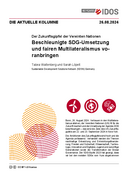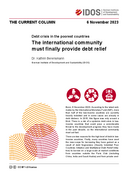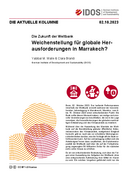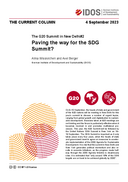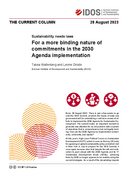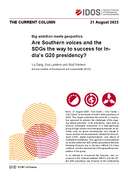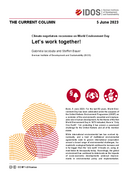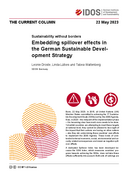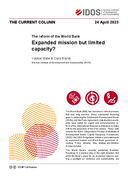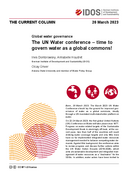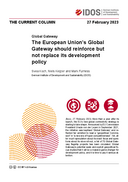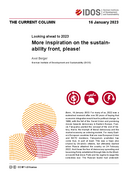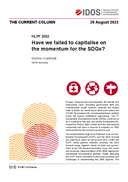Every Monday, researchers from the German Institute of Development and Sustainability (IDOS) comment on the latest issues and trends of global sustainable development by its ‘Current Column’. The column is aimed at politically interested readers who would like to get a brief assessment of a topic or want to read different positions on a respective topic. The views expressed in these columns are those of the author(s) and do not necessarily reflect the views or policies of the German Institute of Development and Sustainability (IDOS).
- Policy Advice
- Team
- Events
-
- IDOS Mission and Vision
- Organisational Structure (PDF)
- Boards and Bodies
- Safeguarding good scientific practice and research ethics
- Prevention of Corruption
- Sustainability Management
- Working and Family Life
- Career & Internships
- Contact & Directions
- Procurement
- Declaration of accessibility
- Sign Language

